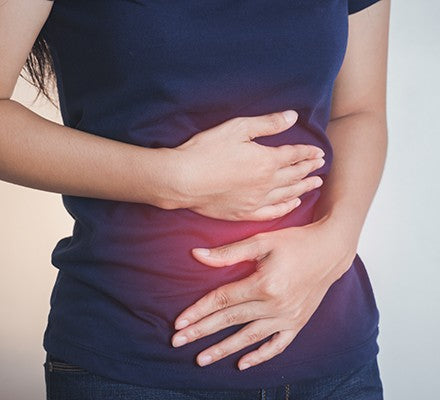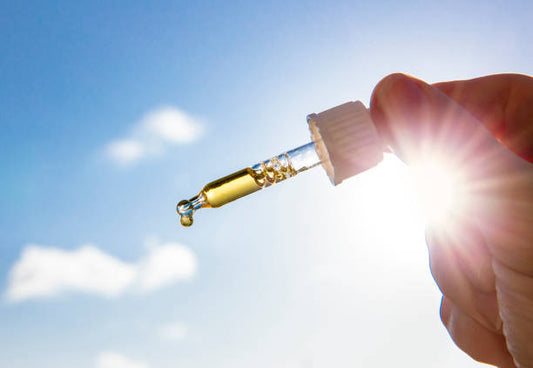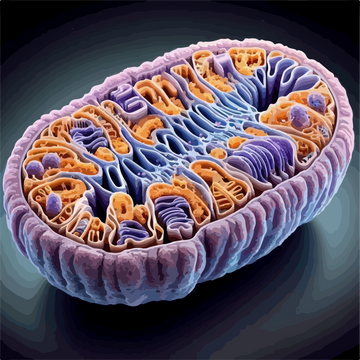Discover Related Products
Now explore supplements designed to support Longevity, Gut Health & Cellular Vitality.
CITOZYM - Support Natural Detox, Immune and Longevity Support
Caffeine: Benefits, Toxic Effects, and Dependence

Table of Contents
-
Introduction
-
Benefits of Caffeine
-
Enhancement of Cognitive Functions and Mental Performance
-
Boost to Physical Performance and Endurance
-
Antioxidant Properties and Metabolic Health Benefits
-
Reduction in the Risk of Neurodegenerative Diseases
-
-
Toxic Effects of Caffeine
-
Overdose and Caffeine Intoxication
-
Cardiovascular Effects
-
Gastrointestinal Effects and Diuretic Action
-
Effects on Sleep and Mental Health
-
-
Caffeine Dependence
-
Mechanism of Dependence
-
Withdrawal Symptoms and Managing Dependence
-
Individual Differences in Caffeine Sensitivity
-
Caffeine in Vulnerable Populations: Pregnant Women and Teens
-
-
Conclusion
-
References
1.Introduction
Caffeine is more than just an energy booster; it’s an integral part of daily routines for millions of people worldwide. From your morning coffee to an afternoon energy drink, caffeine offers a quick pick-me-up that helps you stay alert and focused. However, there’s more to caffeine than meets the eye. This article explores the pros and cons of caffeine, including its impact on mental performance, physical endurance, and overall health.

Fig. 1 - Caffeine / C8H10N4O2 / 1,3,7-trimethylxanthine
2. Benefits of Caffeine
- Enhancement of Cognitive Functions and Mental Performance: Caffeine acts by blocking adenosine receptors in the brain, reducing fatigue and improving alertness, focus, and learning capacity. A study in Psychopharmacology found that caffeine consumption leads to significant improvements in cognitive performance, including memory, reaction time, and problem-solving skills [1]. Caffeine also boosts performance in tasks requiring sustained attention and vigilance, as noted in a Journal of Clinical Psychiatry analysis [2].
- Boost to Physical Performance and Endurance: Caffeine is widely used in the fitness world to enhance physical performance. It stimulates the breakdown of fats, allowing the body to use fatty acids as an energy source instead of glycogen, which delays fatigue and boosts endurance. Research published in the Journal of Applied Physiologyshows that caffeine can enhance endurance and muscle strength, making it especially beneficial for endurance sports like running and cycling [3].
- Antioxidant Properties and Metabolic Health Benefits: Coffee, one of the primary sources of caffeine, is packed with antioxidants that help fight free radicals and reduce inflammation. These benefits are linked to a lower risk of chronic diseases, such as type 2 diabetes and certain types of cancer. A comprehensive study in The American Journal of Clinical Nutrition highlighted that regular coffee consumption is associated with a reduced risk of type 2 diabetes [4]. Additionally, caffeine has been shown to boost metabolic rate and promote weight loss by increasing energy expenditure and thermogenesis.
- Reduction in the Risk of Neurodegenerative Diseases: Caffeine may offer neuroprotective benefits, potentially reducing the risk of conditions like Alzheimer’s and Parkinson’s disease. According to research in JAMA Neurology, regular caffeine intake is linked to a lower risk of developing Parkinson’s disease, thanks to its anti-inflammatory and neuroprotective effects [5].
3. Toxic Effects of Caffeine
- Overdose and Caffeine Intoxication: Consuming too much caffeine can lead to caffeine intoxication, characterized by symptoms such as nervousness, insomnia, rapid heartbeat, tremors, nausea, and, in severe cases, seizures. The Diagnostic and Statistical Manual of Mental Disorders (DSM-5) notes that caffeine intoxication typically occurs at intake levels of more than 400-600 mg per day, which can be easily exceeded with high-caffeine energy drinks [6].
- Cardiovascular Effects: While caffeine can temporarily raise blood pressure, its long-term effects on cardiovascular health are complex and vary based on dose, frequency of intake, and individual genetic factors. A meta-analysis published in The American Journal of Clinical Nutrition suggests that moderate caffeine consumption (up to 400 mg per day) does not significantly increase the risk of hypertension or cardiovascular disease in healthy adults [7].
- Gastrointestinal Effects and Diuretic Action: Caffeine stimulates gastric acid production, which can worsen conditions like acid reflux and gastritis. It also acts as a diuretic, increasing urine output and the risk of dehydration if fluid intake isn’t adequately managed. Studies in Gastroenterology recommend that individuals with gastrointestinal issues moderate their caffeine intake [8].
- Effects on Sleep and Mental Health: Caffeine can significantly disrupt sleep by reducing both sleep duration and quality, particularly when consumed later in the day. Due to its half-life of 3 to 7 hours, caffeine can stay in your system and interfere with sleep. Sleep Medicine Reviews reported that consuming caffeine less than six hours before bedtime can reduce total sleep time and increase the time it takes to fall asleep [9]. Caffeine may also aggravate anxiety and stress by increasing adrenaline and cortisol, the body's primary stress hormone.
4. Caffeine Dependence
-
Mechanism of Dependence: Caffeine dependence occurs when regular use leads to physical and psychological reliance. Caffeine blocks adenosine receptors and boosts dopamine production, which can make the brain crave that boost repeatedly. According to a study in Psychopharmacology, about 50% of regular caffeine users develop dependence, experiencing withdrawal symptoms like headaches, fatigue, difficulty concentrating, and irritability when caffeine intake is reduced or stopped [10].
-
Withdrawal Symptoms and Managing Dependence: Caffeine withdrawal symptoms can start as soon as 12-24 hours after the last dose and peak within 20-51 hours. Managing caffeine dependence typically involves gradually reducing caffeine intake to lessen withdrawal symptoms. Experts recommend cutting back caffeine by 10-20% each week until reaching moderate consumption levels or stopping altogether [11].
-
Individual Differences in Caffeine Sensitivity: Sensitivity to caffeine varies widely among individuals, influenced by genetic factors, consumption habits, and physiological differences such as age, weight, and overall health. For example, the CYP1A2 gene, which regulates caffeine metabolism in the liver, has variants that affect how quickly caffeine is processed. Individuals with a slower metabolism may experience more intense and prolonged effects, even from small doses [12].
-
Caffeine in Vulnerable Populations: Pregnant Women and Teens: Pregnant women metabolize caffeine more slowly, leading to increased fetal exposure. Research in BMJ indicates that high caffeine consumption during pregnancy is associated with an increased risk of miscarriage and low birth weight [13]. The American College of Obstetricians and Gynecologists (ACOG) recommends that pregnant women limit caffeine intake to less than 200 mg per day. For adolescents, caffeine intake is on the rise, often through energy drinks that can contain high levels of caffeine. The American Academy of Pediatrics advises against caffeine consumption in children and teens due to the risk of dependence, increased blood pressure, and potential negative effects on neurobehavioral development [14].
5. Conclusion
Caffeine offers a range of benefits, from boosting alertness and physical performance to providing metabolic and neuroprotective effects. However, it's important to be mindful of the potential risks, including toxicity, sleep disruption, gastrointestinal issues, and dependence. By keeping caffeine intake within recommended limits and adjusting consumption to suit your health needs, you can enjoy the perks of caffeine while minimizing the downsides.







No comments